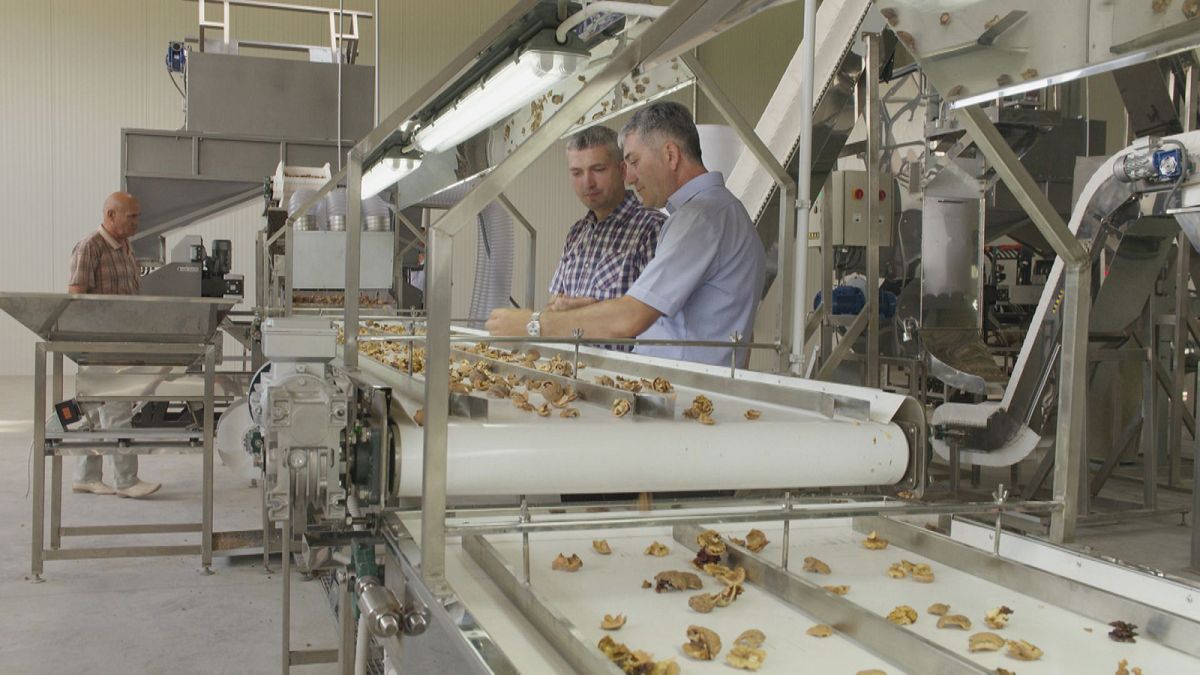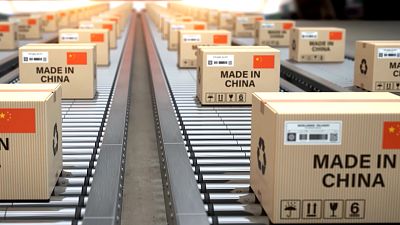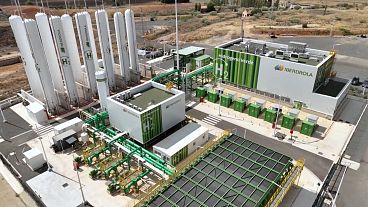From plums and pears to nuts and wine, Moldova is famed for its fruit and food production. But despite that rich farming tradition, getting the money to start or modernise an agro business here can be tough. But an EU initiative aims to change that.
Getting the finance to start or develop any small or medium-sized enterprise can be tough at the best of times. In Moldova, it can be especially hard. But are things changing?
Business Planet visited Soroca, in the north of the country, to see how farms are benefiting from a special European initiative.
AMG Kernel is Europe's biggest walnut farm. It covers 750 hectares and exports nearly 80 percent of its harvest. Most of that goes to Europe. But while big, like many farms in Moldova, it wanted to modernise.
Thanks to an initiative called the 'Fruit Garden of Moldova’ project, the farm secured a €2.5m loan from Mobiasbanca.
Victor Gutu, AMG Kernel’s director, said the finance was crucial for the business: “This EU financed project enabled us to start constructing a walnut processing plant. As a result, we've become more competitive when it comes to selling our products in European markets.''
The loan was made possible after the European Investment Bank lent national banks inside Moldova €120m.
More recently, thanks to the European Union's EU4 business initiative, farmers can now also get advice and technical support.
Igor Gorashov, a technical advisor with the ‘Fruit Garden of Moldova’ project, works with businesses on the ground in the country.
“Basically we're putting the people together, because before it was a problem for Moldovan farmers to access finance. So we help both farmers and banks to work together and improve access to finance for Moldovan SMEs.”
The ‘Fruit Garden of Moldova’ project comes under a broader strategy to help boost economic development in Moldova and Europe's eastern neighbours.
“These EU investments are extremely beneficial for the Republic of Moldova as they allow for faster integration of its economy into European markets,” says Gutu.
He adds: "It also enables the country to follow European standards and a legal framework from the implementation stage, so that in the future it can be more competitive while penetrating EU markets."
To find out more you can go to our webpage here or our social media networks.




